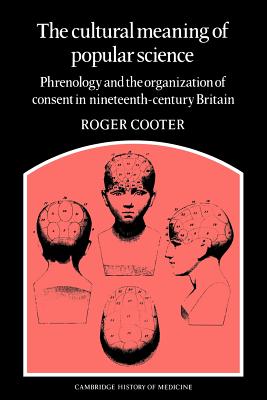This study of the popularity of phrenology in the second quarter of the nineteenth century concentrates on the social and ideological functions of science during the consolidation of urban industrial society. It is influenced by Foucault, by recent work in the history and sociology of science, by critical theory, and by cultural anthropology. The author analyses the impact of science on Victorian society across a spectrum from the intellectual establishment to working-class freethinkers and Owenite socialists. In doing so he provides the first extended treatment of the place and role of science among working-class radicals. The book also challenges attempts to establish neat demarcations between scientific ideas and their philosophical, theological and social contexts.
| FindBook |
有 1 項符合
The Cultural Meaning of Popular Science: Phrenology and the Organization of Consent in Nineteenth-Century Britain的圖書 |
 |
The Cultural Meaning of Popular Science: Phrenology and the Organization of Consent in Nineteenth-Century Britain 作者:Cooter 出版社:Cambridge University Press 出版日期:2005-06-30 語言:英文 規格:平裝 / 436頁 / 22.9 x 15.2 x 2.5 cm / 普通級 |
| 圖書館借閱 |
| 國家圖書館 | 全國圖書書目資訊網 | 國立公共資訊圖書館 | 電子書服務平台 | MetaCat 跨館整合查詢 |
| 臺北市立圖書館 | 新北市立圖書館 | 基隆市公共圖書館 | 桃園市立圖書館 | 新竹縣公共圖書館 |
| 苗栗縣立圖書館 | 臺中市立圖書館 | 彰化縣公共圖書館 | 南投縣文化局 | 雲林縣公共圖書館 |
| 嘉義縣圖書館 | 臺南市立圖書館 | 高雄市立圖書館 | 屏東縣公共圖書館 | 宜蘭縣公共圖書館 |
| 花蓮縣文化局 | 臺東縣文化處 |
|
|
圖書介紹 - 資料來源:博客來 評分:
圖書名稱:The Cultural Meaning of Popular Science: Phrenology and the Organization of Consent in Nineteenth-Century Britain
|











